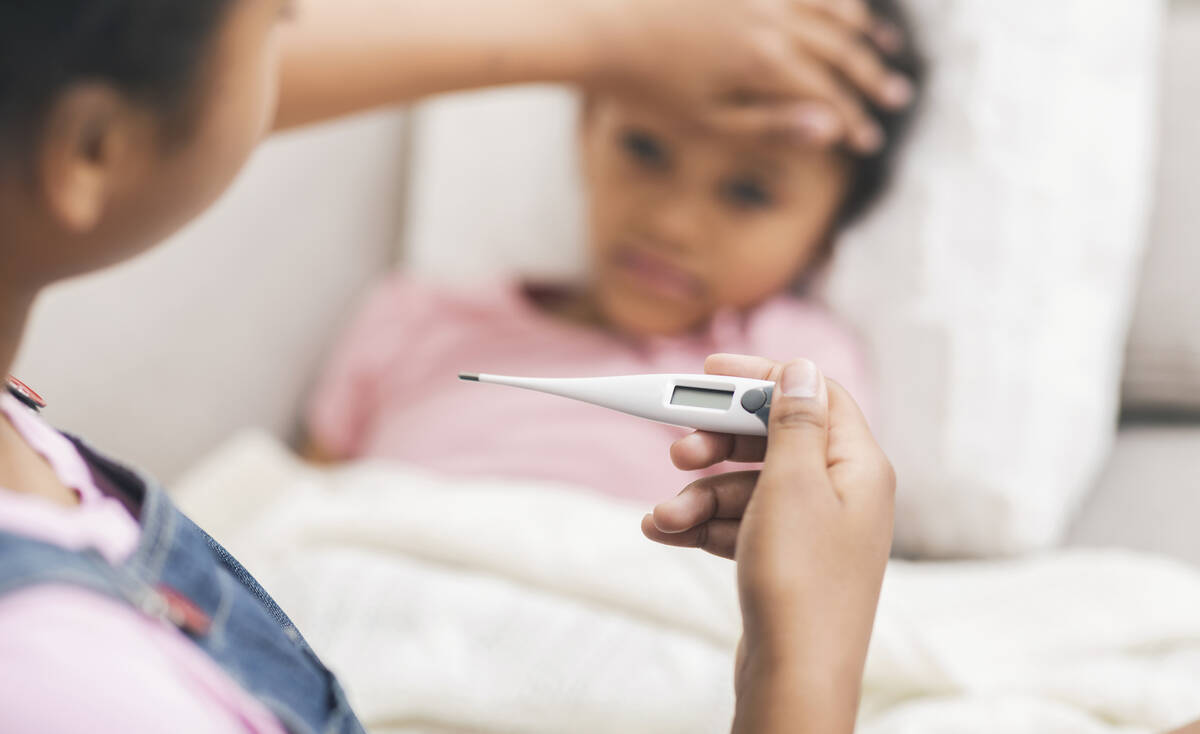Ask the Pediatrician: How to help a child with a fever feel better
If your child is older than 6 months and has a fever, they probably do not need to be treated for the fever unless they are uncomfortable.
The key is to watch your child’s behavior. If they are drinking, eating and sleeping normally, and they are able to play, you do not need to treat the fever. Instead, you should wait to see if the fever improves by itself.
What you can do to help your child feel better:
— Keep their room comfortably cool.
— Make sure they are dressed in light clothing.
— Encourage them to drink fluids such as water or a store-bought electrolyte solution.
— Be sure that they do not overexert themselves.
What not to do if your child has a fever:
— Do not use aspirin to treat your child’s fever or discomfort. Aspirin has been linked with side effects such as an upset stomach, intestinal bleeding, and Reye’s syndrome. Reye’s syndrome is a serious illness that affects the liver and brain.
— Do not use sponging to reduce your child’s fever. Cool or cold water can cause shivering and increase your child’s temperature.
— Never apply rubbing alcohol on your child to treat fever. Rubbing alcohol can be absorbed into the skin or inhaled, causing serious conditions such as a coma.
Acetaminophen and ibuprofen can help your child feel better if your child has a headache or body aches or a fever that is making them uncomfortable.
Acetaminophen for children comes in liquid as well as pills that can be chewed. It also comes as a pill that is put in the rectum (suppository) if your child is vomiting and can’t keep down medicine taken by mouth.
Ibuprofen comes in liquid form for young children and chewable tablets that may be given to older children. With ibuprofen, keep in mind that there are two different kinds of liquid medicines: one for infants 6 months and older and one for toddlers and children up to age 11. Infant drops are stronger (more concentrated) than the medicine for children.
A “tripledemic” of respiratory viruses — RSV, flu and COVID-19 — is making it harder to find over-the-counter children’s pain and fever medications in some areas. Try not to panic if stores near you are out of stock. While fever-reducing medicines can make your child more comfortable, they do not cure illness.
Always look carefully at the label on the medicine and follow the directions. Each type of medicine has different directions based on the age and weight of a child. You should ask your child’s doctor about the right dose for your child. Also, if your child is taking other medicines, check the ingredients. If they include acetaminophen or ibuprofen, let your child’s doctor know.
Dr. Preeti Parikh, is a board-certified pediatrician at New York City’s Westside Pediatrics and assistant clinical professor at the Mount Sinai School of Medicine.


















